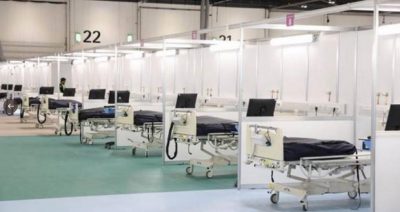British Medical Journal (BMJ): Conflicts of Interest Among the UK Government’s COVID-19 Advisers

Little is known about the interests of the doctors, scientists, and academics on whose advice the UK government relies to manage the pandemic. Attempts to discover more are frequently thwarted, finds Paul D Thacker
***
As the number of UK deaths caused by covid-19 reached 50 000 in early November, England enacted a second national lockdown to control the epidemic. Boris Johnson’s government put these measures into action after months of controversial and sometimes confusing policies, including the “rule of six,” regional tiered controls, and directions to “stay alert.” At the same time, the government has faced mounting questions about procurement decisions, from personal protective equipment to testing kits, from vaccine deals to the services of logistics companies.
Calls for greater transparency around such decisions have included those bodies focused on science and health, such as the Scientific Advisory Group for Emergencies (SAGE), as well as taskforces charged with advising on vaccines and testing. Although Downing Street has become more transparent in disclosing the advice of SAGE, it has kept members’ financial conflicts of interest unpublished and shown little concern that advisers to the coronavirus Vaccine Taskforce have financial interests in pharmaceutical companies receiving government contracts. When The BMJ sought further information on these bodies, such as lists of members’ interests, the information was denied or requests were unanswered.
Information withheld
After months of criticism about SAGE secrecy, the government reversed course this summer and began releasing the names of SAGE members, minutes of meetings, and some of its policy papers. Still, the government has refused to release to The BMJ the financial interest forms signed by SAGE members, leaving the public in the dark.
Criticism over SAGE’s secrecy first appeared in a Nature editorial[1] in March. In April, the government’s chief scientific adviser Patrick Vallance sent a letter to parliament[2] stating that SAGE’s membership, recommendations, supporting documents, and meeting minutes would be published, but only after the group ceased meeting about covid-19. Vallance argued[3] that secrecy protected SAGE members and shielded them “from lobbying and other forms of unwanted influence which may hinder their ability to give impartial advice.”
Note to readers: please click the share buttons above or below. Forward this article to your email lists. Crosspost on your blog site, internet forums. etc.
Featured image is from UK Column

